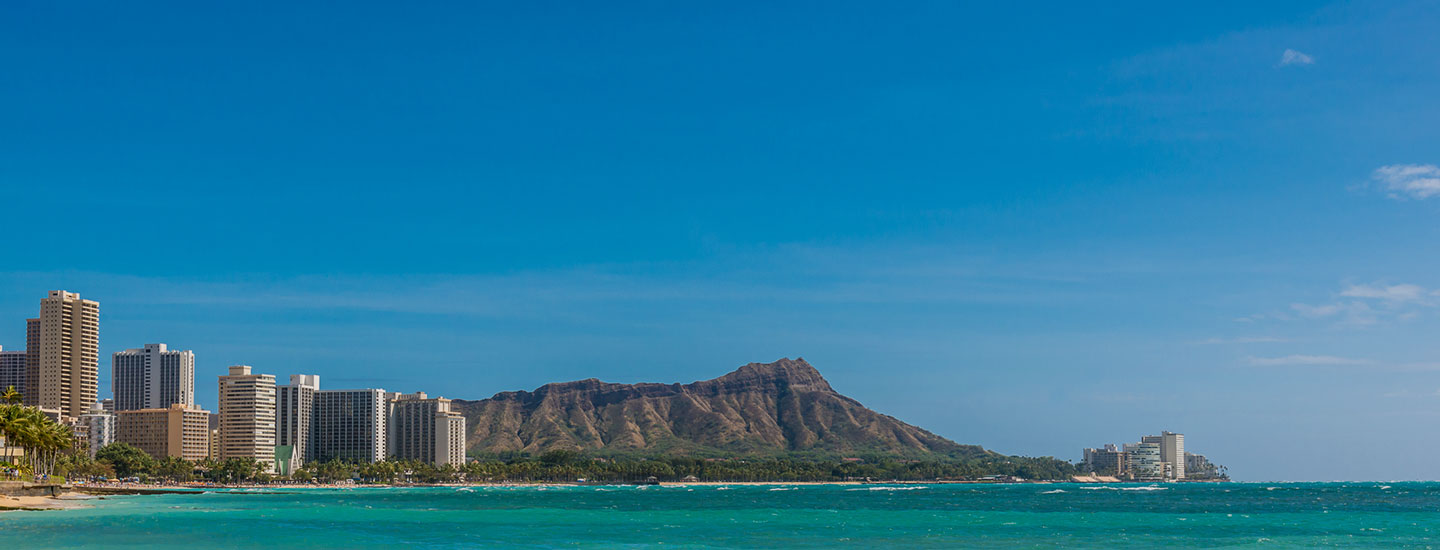
09.24.15
Hawaii Supreme Court Sides with Surfrider to Protect Waikiki Beach from Kyo Ya's Overdevelopment
By Angela HoweSurfrider Foundation and a coalition of environmental groups received a big win from the Hawaii Supreme Court this week when it struck down the Kyo Ya Resort and Hotel's zoning variance that would have expanded the hotel 60 feet into the setback area on Waikiki, the state’s most popular beach. The Supreme Court upheld the coastal preservation arguments of Surfrider Foundation, Hawaii’s Thousand Friends, Ka Iwi Coalition and KAHEA against the coastal setback variance requested by Kyo Ya in 2010. 
Despite approval of the zoning variance by the City Council, Department of Planning and Permitting and a loss for the environmental coalition in the lower court, the Hawaii Supreme Court ruled unanimously affirming coastal zoning protections and the importance of open space. Environmental groups protested the project from the start due to the proposed 26-story tower looming over Waikiki beach adjacent to Kuhio Beach Park, affecting beach access and public enjoyment of the resource as well as setting a dangerous, erosion-provoking trend in coastal development. Moreover, the project would have gone up just 40 feet from the shoreline, taking up important towel space from beachgoers. The unanimous decision justified the environmental coalition’s long-fought battle against the wealthy developers.
The Supreme Court ruling notes that the City Council established the coastal setback requirement because of the need to “maximize public safety and the sense of open space and public enjoyment associated with coastal resources.” Furthermore, the zoning ordinances were originally passed in order to retain and enhance “the sense of place that makes Waikiki unique…[and to]...guide carefully Waikiki's future and protect its unique Hawaiian identity.” Justice Richard Pollack wrote for the majority (with Chief Justice Recktenwald concurring) when it decided that Kyo Ya did not deserve a variance even though there are some nonconforming buildings in the Waikiki Special District, as the hotel developer argued. The nonconforming buildings went up before he enactment of the special district in 1976. The court was unanimous in holding that Kyo Ya would not lose reasonable use of its property (or economic viability) if denied this zoning variance.
Besides being more than three times the height of the existing hotel, the proposed new tower violated the Waikiki Special District’s zoning laws in terms of height, density and coastal setback. In spite of overwhelming public testimony against the developer’s plans, the City Council and state permitting authority approved Kyo Ya’s plans. The hotel high-rise proposal was supported by a band of big bureaucrats, wealthy companies and law firms, and Surfrider Foundation and our allies were the classic underdog in this importnat battle over coastal preservation. The Oahu Chapter's five-year campaign paid off with a win from the highest court in the land, helping to set strong state law precedent, affirming the sanctity of coastal protection laws.
